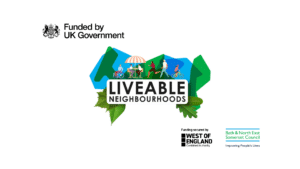Dr Adrian Davis
Top line: A culture change is needed for a safe systems approach to achieve objectives of eradicating deaths and life changing injuries on the road. Political commitment, public support, cooperation across agencies and coordination are essential ingredients.
Road safety has traditionally been an issue for the transport system to address and there was, for a long time, no systematic engagement with either the field of public health or the field of occupational health and safety. Ironically, the World Health Organisation is now playing a lead role in promoting global action as road trauma assumes a more prominent position in the global burden of disease, yet it lacks the networks to influence institutional change among the transport players.
The term safe system now represents the current consensus of what constitutes best practice strategic thinking in road safety.1 It builds upon Sweden’s Vision Zero and the dutch principles of sustainable safety.2 Many discussions of the safe system model commence with a discussion of an assumed underlying ethical platform in which human life is sacrosanct. The Swedish parliament formally adopted ‘‘Vision Zero” in 1997 which, in effect, made the prevention of death and serious injury the over-arching policy objective in the management of the road transport system. Elvik has shown what matters most in creating commitment and action is the setting of ambitious, quantitative targets. The nations considered as being at the leading edge of safety thinking and performance set their safety performance targets in terms of reductions in the absolute number of deaths and serious injuries, not merely as reductions in population-based rates.3
An Australian review of road safety practice has suggested that adoption of this conceptual model requires a level of change in institutional mindset that cannot be understated.4 While there are standards that take safety explicitly into account their origins are rarely based on a sound understanding of human behaviour and their application is based typically on motor traffic volumes. The review noted that understanding and acceptance of the safe system principles seems not to be widespread among institutions such as road and traffic authorities, transport planning agencies or enforcement agencies.
In many western societies the culturally-anchored unsafe behaviours of drink-driving, distraction (eg texting), and speeding continue to act as barriers to the achievement of sustainable safety. The review notes that it is important to establish acceptance by both politicians and the public of the rationale for road safety strategies to be implemented. Where folk lore and official strategy are at odds – as is the case with speed moderation across the entire speed distribution – public understanding is vital. The issue of speed is the clearest example of a mismatch between strategic thinking and cultural mindset.
1 OECD, 2008. Towards Zero: Ambitious Safety Targets and the Safe System Approach. OECD, Paris.
2 See https://travelwest.info/project/ee-15-vision-zero
3 Elvik, R. 2003 An overview of target setting in Europe. In Best in Europe 2003: Targeted Road Safety Programmes in the EU. Brussels: European Transport Safety Council.
4 Johnston, I. 2010 Beyond “best practice” road safety thinking and systems management – A case for culture change research, Safety Science, 1175-1181.
144: Beyond Best Practice in Road Safety thinking – seeking a culture change
Download
pdf
PDF approximately 162.63 K




